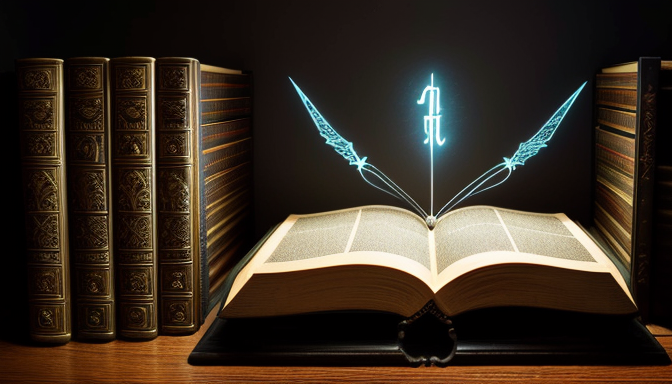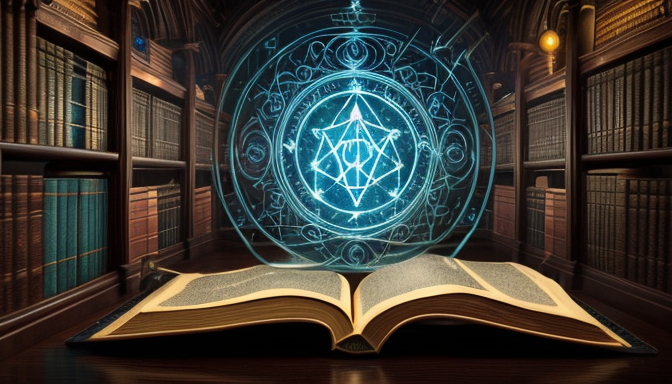Magic has always been a captivating concept, a thread woven into the fabric of human culture and storytelling. From the ancient myths of gods wielding powers beyond comprehension to the intricate fantasy worlds we explore today, the journey of magic is nothing short of enchanting. Have you ever wondered how these mystical elements transitioned from mere tales of wonder into complex systems that define entire genres? Let’s dive into this fascinating evolution!
In ancient civilizations, magic was often intertwined with religion and rituals. Cultures such as the Egyptians and Mesopotamians believed in the power of spells and incantations to influence the natural world. These early manifestations laid the groundwork for what we now recognize as magic. For instance, the Egyptian Book of the Dead is filled with spells meant to guide the deceased through the afterlife, showcasing how magic was used to navigate the mysteries of existence.
Fast forward to the present, and magic has transformed dramatically in literature and media. It has evolved into various forms, often categorized as soft or hard magic systems. Soft magic, like that found in The Lord of the Rings, leaves much to the imagination, creating an air of mystery. On the other hand, hard magic systems, such as in The Name of the Wind, come with defined rules and limitations, making the magic feel more tangible and realistic.
This evolution reflects our changing perceptions of magic, where it serves not just as a means of escape, but as a tool for exploring deeper themes of power, responsibility, and humanity. As we continue to create and consume magical narratives, we find ourselves enchanted by the possibilities that lie within the arcane traditions of our imaginations.
The Origins of Magic in Ancient Cultures
Magic has always been a fascinating aspect of human culture, weaving its way through the fabric of our earliest civilizations. From the mystical rituals of the Egyptians to the shamanistic practices of indigenous tribes, the origins of magic are deeply rooted in the quest for understanding and control over the natural world. In ancient cultures, magic was not just a form of entertainment; it was a serious practice that intertwined with religion, medicine, and daily life.
Take, for instance, the Egyptians, who believed in the power of spells and incantations to influence the gods and the afterlife. Their hieroglyphics were often inscribed with magical formulas intended to protect the deceased. Similarly, the Mesopotamians utilized magic as a means of healing, employing rituals that combined physical remedies with spiritual invocations. These early practices laid the groundwork for what we now recognize as magical traditions.
As we dive deeper into the realm of ancient magic, we discover various classifications of spells that have influenced modern fantasy. For example:
- Protective Spells: Used to ward off evil spirits or misfortune.
- Healing Magic: Focused on restoring health, often linked with herbal medicine.
- Divination: Seeking knowledge of the future or the unknown through magical means.
These ancient practices not only shaped the cultural significance of magic but also inspired countless tales and legends. As we explore the evolution of magic, we can see how these early manifestations have transformed into the rich, diverse magical systems we encounter in modern literature and media today.

The Transformation of Magic in Literature and Media
Magic has undergone a remarkable transformation in literature and media, evolving from mystical myths to structured systems that captivate our imagination. Have you ever wondered how these enchanting elements work in fictional settings? The spectrum of magic can be broadly categorized into two types: soft magic and hard magic systems. Each type serves a unique purpose in storytelling, shaping the way we perceive the magical world.
In soft magic systems, the rules are often vague and undefined. This ambiguity allows for a sense of wonder and unpredictability, as readers are left to ponder the limits of what is possible. Think of J.R.R. Tolkien’s The Lord of the Rings, where magic feels like an ancient force, mysterious and awe-inspiring, yet never fully explained. On the other hand, hard magic systems present clear rules and limitations. In these worlds, magic functions more like a science, governed by specific laws. A prime example is Brandon Sanderson’s Mistborn series, where the mechanics of Allomancy are meticulously detailed, making the magic feel tangible and accessible.
Moreover, the classification of spells further enriches the narrative. From elemental spells that summon fire or water to intricate rituals that require meticulous preparation, each spell adds depth to the world-building. These arcane traditions not only enhance the plot but also reflect the cultural significance of magic within the story. As we delve deeper into these magical realms, we discover that they often mirror our own society’s values, fears, and aspirations.
In conclusion, the transformation of magic in literature and media is a fascinating journey that reveals much about human creativity and cultural expression. Whether through the enchanting ambiguity of soft magic or the structured intricacies of hard magic, these systems continue to inspire and ignite our imaginations.
Frequently Asked Questions
- What is the origin of magic in ancient cultures?
Magic has deep roots in ancient civilizations, often intertwined with religion and mythology. Rituals and beliefs in supernatural forces were common, laying the groundwork for how we perceive magic today.
- How has magic evolved in literature?
From ancient texts to modern novels, magic has transformed significantly. Classic literature often depicted magic as a serious and mysterious force, while contemporary works embrace it as a tool for creativity and escapism.
- Why is magic culturally significant?
Magic reflects our deepest desires and fears, acting as a mirror to societal values. It serves as a means of exploring the unknown, allowing us to challenge reality and imagine possibilities beyond our everyday lives.
- What role does magic play in modern fantasy?
In modern fantasy, magic is not just a plot device; it shapes characters and worlds. It allows for the exploration of complex themes such as power, morality, and identity, making stories more engaging and relatable.

Recent Comments